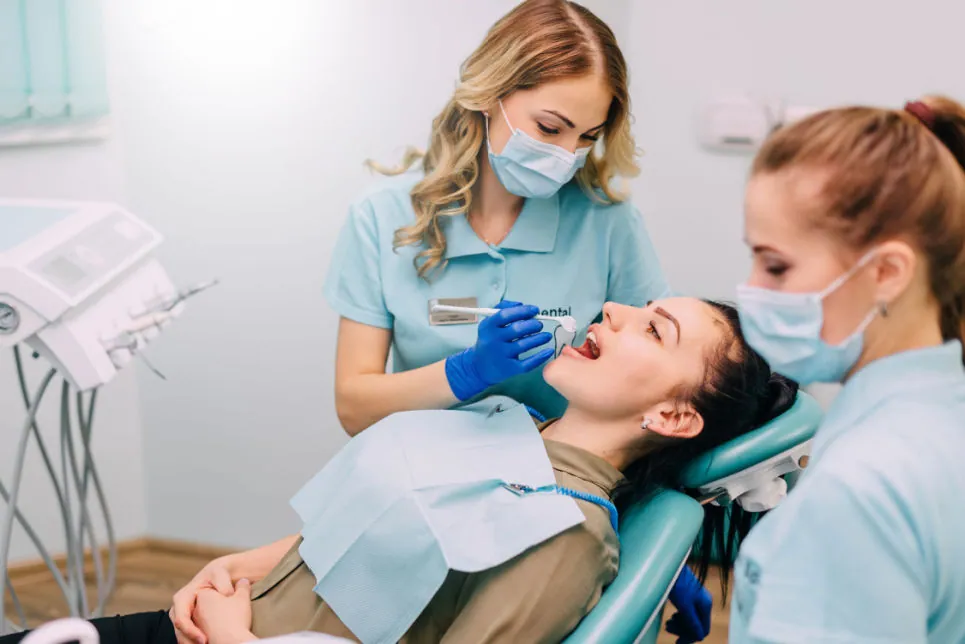Can a nurse prescribe antibiotics? To explain it clearly, a nurse can prescribe antibiotics when they work as an Independent Nurse Prescriber (V300). Additionally, they can prescribe medications when following a Patient Group Direction for a specific health issue. Community Practitioner Nurse Prescribers (V100/V150) cannot do this. Instead, they work with a small list of dressings and basic items.
Antibiotic use needs care. For this reason, every choice matters. The UK saw around 400 antibiotic-resistant infections each week in 2024. Because of this, NHS antibiotic use went down by 2% in 2019. These numbers show why nurses need a clear reason and the right training before they prescribe any antibiotic.
Let’s dive in and explore who can prescribe antibiotics and how the process works.
Can a Nurse Prescribe Antibiotics?
Yes, Nurse Independent Prescribers (NIPs) can give medicines, including antibiotics. This means they can treat infections and other health problems with the right medicine. But they need proper training and skills to do it safely.
It is also important that NIPs follow strict laws and professional rules. The British National Formulary (BNF) says they can prescribe safely when they know the medicine, the patient’s condition, and the correct dose. In fact, careful prescribing by NIPs helps stop antibiotic resistance. At the same time, it makes sure patients get the right treatment when they need it.

Which Nurses Are Allowed to Prescribe Medication?
There are two main types of nurses who can prescribe medicine in the UK:
Community Practitioner Nurse Prescribers (V100/V150)
These nurses can only give medicines or items from a small, specific list called the NPF list. For example, they can use dressings, basic medical supplies, and appliances. However, they cannot give antibiotics or most other medicines.
Independent or Supplementary Prescribers (V300)
These nurses can give any medicine that is safe and fits their training. This includes antibiotics and other prescription medicines. At the same time, they must follow strict rules to make sure patients get medicine safely.
Shortly, V300 nurses can prescribe many more medicines, while V100/V150 nurses have a smaller, limited list.
What Is an Independent Nurse Prescriber?
An Independent Nurse Prescriber, also called a Supplementary Prescriber, is a nurse with extra training to give medicines safely. This training lets them give antibiotics and many other types of medicine.
They can give some controlled medicines, but only following strict rules. They cannot give medicines used to treat addiction. Nurses also follow local rules and professional guidance to keep patients safe. In short, Independent Nurse Prescribers can do more than most nurses, but they always put patient safety first.
Go behind the scenes with a dental nurse and see their world. Read the full article: “What Does a Dental Nurse Do?“
Can Community or Practice Nurses Prescribe Antibiotics?
Community Practitioner Nurses
Community Practitioner Nurses, like district nurses or health visitors, cannot prescribe antibiotics. This is because they can only give a small list of medicines from the NPF or Drug Tariff Part XVIIB(i). In other words, they can give basic healthcare items. But they cannot give antibiotics.
Practice Nurses
Practice nurses can prescribe antibiotics only if they are NIP-qualified (V300). If they are not NIP-qualified, they cannot prescribe. Instead, they can give medicines under a Patient Group Direction (PGD) in certain situations. This is not full prescribing, but it lets them give medicines safely when patients need them.
Can Nurses Prescribe Antibiotics in Walk-In Centres?
Many people go to walk-in centres when they need help quickly. These centres see many patients every day. So trained nurses handle a big part of the work. If the centre has a V300-qualified nurse, they can check you and give antibiotics when you need them. Some centres also use PGDs. This lets nurses give certain medicines in a safe and approved way.
Here is the simple point. Walk-in centres help you get treatment fast. But nurses still follow clear rules so antibiotics stay safe for everyone.

The Role of PGDs in Nurse Prescribing
Patient Group Directions (PGDs) are written rules that let trained nurses give certain medicines safely without a doctor. In other words, nurses can use PGDs for specific problems. These include common infections, vaccinations, or routine treatments. PGDs make sure the nurse gives the right medicine, at the right dose, to the right person.
PGDs are very useful in clinics, walk-in centres, and community health services. This means patients can get treatment quickly, even when a doctor is not available. Before giving any medicine, nurses always check the patient’s symptoms and age. They also review the patient’s health history to make sure the treatment is safe. In short, PGDs help nurses give safe treatment and make sure medicines are used properly.
Why PGDs matter:
- Quick access to medicine
- Safe and correct use
- Clear rules for nurses
Do Nurses Need Extra Training to Prescribe Medicine?
Yes, nurses need extra training to give medicines safely. To do this, they must complete a special course called the NMC-approved V300 course. This course teaches about medicines, the law, and rules about patient safety.
The course also includes supervised practice. This helps nurses learn how to prescribe correctly. Only nurses who finish this course can legally give medicines in the UK. After the course, their qualification is added to the NMC register. This step makes sure patients always get safe and proper care.
Can All Nurses Give Out Antibiotics in the UK?
No, not all nurses can give antibiotics. Only Independent Nurse Prescribers or nurses who follow a valid Patient Group Direction (PGD) can give antibiotics legally. This means they have special training or rules that let them give antibiotics safely. If a nurse is not qualified, the patient must get a prescription from a doctor or another approved prescriber. These rules help keep patients safe and make sure antibiotics are used the right way.
What Are the Limits on Nurse Prescribing?
Nurses can only give medicines that match their training and skills. For example, Independent Nurse Prescribers (NIPs) cannot keep a stock of prescription medicines like doctors or dentists. This rule makes sure medicines are used safely.
On the other hand, Community Practitioner Nurse Prescribers (CPNPs) must follow a small list of items called the NPF list. These rules help stop mistakes and keep patients safe. In short, nurses can prescribe medicines, but they must always follow the rules and only give what they are trained to give.
Common Conditions Nurses Can Treat With Antibiotics
NIP-qualified nurses treat many simple infections. These are problems people often face. For example, they treat urine infections, chest infections, sinus infections, ear infections, and skin infections. Now, here is why this matters. You get care faster because you do not need to wait for a doctor. The nurse checks your symptoms first. Then the nurse decides if antibiotics will help you. This keeps your treatment safe and correct.

Why Is Antibiotic Prescribing Controlled?
Antibiotic use is controlled to stop antibiotic resistance. For example, the UK Health Security Agency (UKHSA) reported about 400 antibiotic-resistant infections every week in 2024. At the same time, NHS use of antibiotics was 2% lower than in 2019. This shows that we must use antibiotics carefully to keep them working and keep patients safe.
Final Thoughts: When Nurses Can Prescribe Antibiotics
So, can a nurse prescribe antibiotics? It depends on their training. If a nurse is V300-qualified, they can give antibiotics when the patient needs them. But Community Practitioner Nurse Prescribers (CPNPs) can only use a small list of medicines. At the same time, many services use Patient Group Directions (PGDs) for certain treatments. This way, patients can get care quickly and antibiotics are used safely.
Want to start your journey as a skilled dental nurse? Explore our flexible and affordable Dental Nurse Course at the School of Health Care today!
FAQs
Are nurses allowed to prescribe antibiotics?
Yes, only nurses trained as Independent Prescribers (V300) or following a valid PGD can prescribe antibiotics.
What medication can nurses prescribe?
It depends on their training. V300 nurses can prescribe most medicines within their competence. V100/V150 nurses can only give items on a small list (NPF).
Can a registered nurse prescribe antibiotics?
Not all. Only Independent Nurse Prescribers (V300) can prescribe antibiotics legally.
How can I get antibiotics without going to a GP?
You can get them from a nurse who is an Independent Prescriber (V300) or under a valid PGD at some clinics.
Can I ask for antibiotics without seeing a doctor?
Yes, if an Independent Nurse Prescriber (V300) or a valid PGD service can see you, and it is safe.
How to get antibiotics quickly in NHS?
You can contact clinics with V300 nurses or urgent care services that follow PGDs. They can give antibiotics if needed.
Can I walk into a pharmacy and get antibiotics?
No, pharmacies cannot give antibiotics without a prescription from a doctor or a qualified prescriber.




